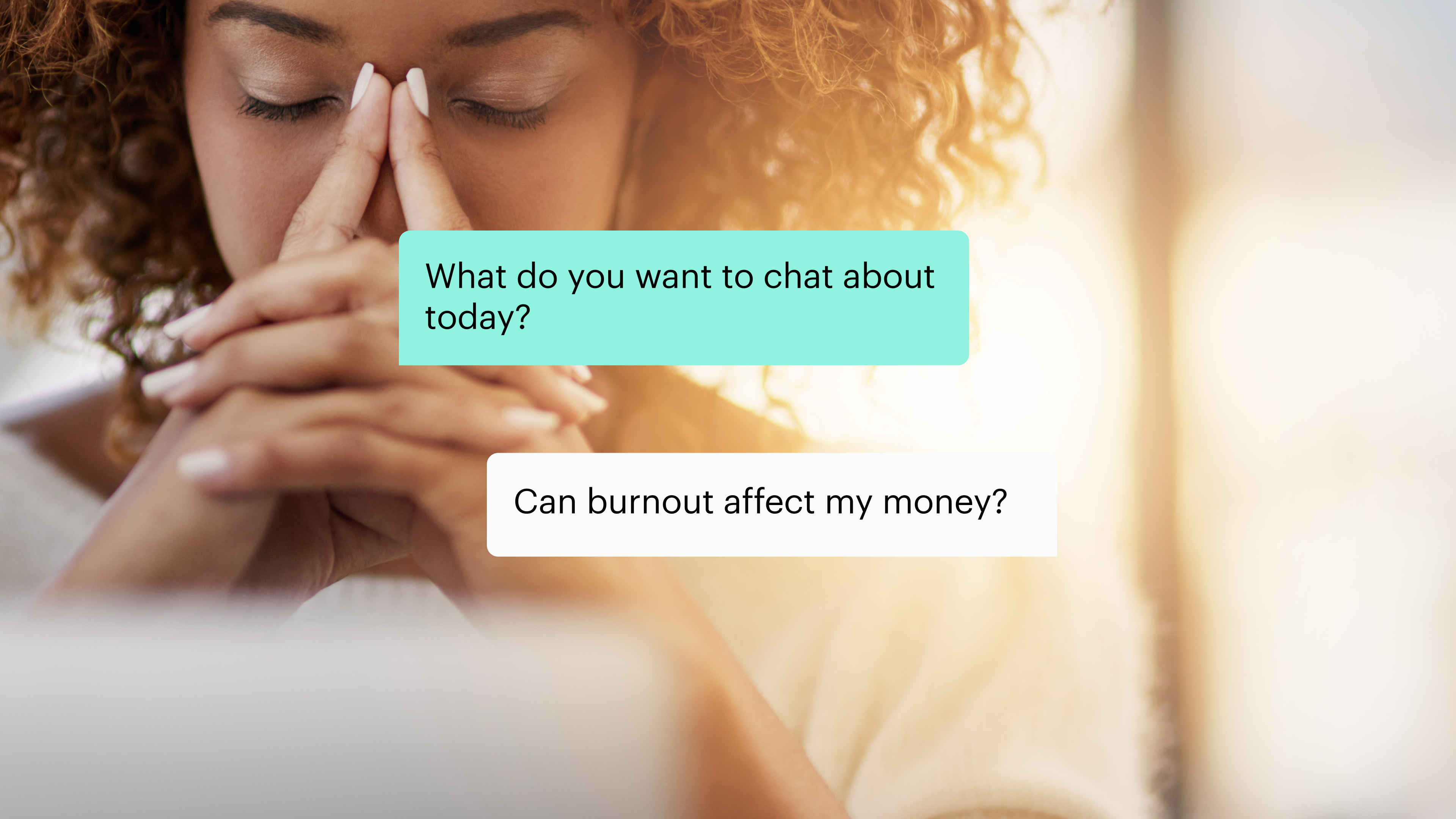The Story
People all over the world say they're burnt out. That can affect your health and make your money life more stressful.
Tell me more.
Money = top stressor for many people. And the pandemic has magnified financial problems that regularly plague Americans (especially women and BIPOC people). Think: expensive health care coverage, lack of paid leave options and affordable child care, income inequality. Not to mention the crazy job market.
Burnout at work sounds familiar.
Same for many Americans. The pandemic blurred the lines between work and home (do we work at home or live at work?), causing people to keep longer and stranger hours. Especially since coworkers (and bosses) aren’t around to see your hard work IRL, you might try to overcompensate. And eventually burn out. That’s led many workers to say ‘see ya’ to their jobs altogether and 'oh, hey' to the shecession and Great Resignation. And burnout can take a toll on your finances OOO, too.
How?
Some major burnout symptoms include heightened anxiety, poor sleep, stomachaches, and even heart problems. That can have a negative impact on your money, since more physical ailments often means spending more on copays and meds. And it can bring on brain fog and fatigue, which can lead to bad money choices. Like...
Overspending on convenience. When your mental and physical energy is spent, basic tasks can feel like too much. So you might find yourself always having to opt for rush-shipping because you're too exhausted to stay on top of your to-do list. Or relying too much on takeout and other delivery services. (Psst...budgeting for things like takeout can be a form of self-care. But it's a problem when it jeopardizes your money goals or causes you to go into debt.)
Coping with retail therapy. You might look to shopping as a mental pick-me-up, especially if you’re spending more time scrolling through social media (and ads) to give your brain a break.
Avoiding your money to-dos. After a long day, checking your bank account or credit report probably isn't your idea of fun. Finances, meet back burner.
What can I do to avoid burning out...and going broke?
Get to the root cause. Figuring out what’s burning you out can help you find solutions. If you can, talk to your boss or family about what you can do to destress. Like taking time off, clarifying expectations, and setting boundaries. Also consider talking to a pro. You might qualify for free or low-cost care from a local gov-funded health center or university hospital. Pro tip: if you have a health savings account or flexible spending account, use it.
Set a budget. Tracking your spending and setting clear financial goals can help you take control. That beats panicking every time you get a bill or swipe your card. Use free software like Mint to do the heavy lifting or stick with a spreadsheet if that’s your thing. Whatever works to make sure you can afford all the things you need and at least some of what you really want. Remember: if that includes convenience services and some retail therapy, add those splurges to your budget.
Build up your F-off fund. Because your mental health should be a top priority. And you want to be able to walk from any situation that threatens your well-being. Thanks for the reminder, Naomi Osaka and Simone Biles.
Schedule in (healthy) down time. It’s important to give yourself regular mental breaks. And (self) love don't cost a thing. Go for a walk, read a book, take your dog to the park...anything you need to take your mind off work and other stressors. Block that time off on your cal. If necessary, consider outsourcing to give yourself even more time.
theSkimm
Burnout has become a real problem. And it can make your money life even more stressful by tempting you to overspend and ignore important money tasks. Taking a few proactive steps can help you avoid burning the candle (and your budget) at both ends.
Subscribe to Skimm Money
Your source for the biggest financial headlines and trends, and how they affect your wallet.
